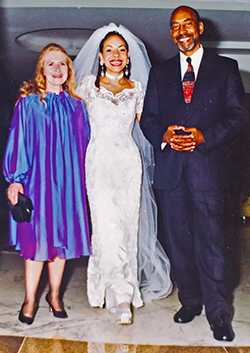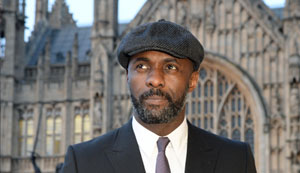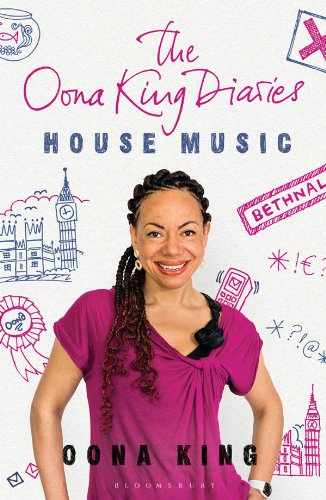Blog: Never again - Britain must influence Rwanda
- Details
When people think of Rwanda they usually think of genocide or, if they've visited, maybe the Garden of Eden. Rwanda's beauty seems at odds with its past horrors. I first visited Rwanda when I was an MP, in 1998, four years after the genocide claimed between 800,000 - 1,000,000 lives. I went to a school where 10,000 people were herded, then murdered. I stood in a classroom where the victims' twisted screams were still clearly visible on their faces; the only signs of the UN were the plastic curtains with the UN logo, nailed over the windows to keep the flies out. As far as the international community was concerned, "never again" turned out to be a slogan, not a policy.
Blog: Never again - Britain must influence Rwanda
- Details
When people think of Rwanda they usually think of genocide or, if they've visited, maybe the Garden of Eden. Rwanda's beauty seems at odds with its past horrors. I first visited Rwanda when I was an MP, in 1998, four years after the genocide claimed between 800,000 - 1,000,000 lives. I went to a school where 10,000 people were herded, then murdered. I stood in a classroom where the victims' twisted screams were still clearly visible on their faces; the only signs of the UN were the plastic curtains with the UN logo, nailed over the windows to keep the flies out. As far as the international community was concerned, "never again" turned out to be a slogan, not a policy.
I returned to the House of Commons and set up the All Party Group on Rwanda and Genocide Prevention (which subsequently became the All Party Group on the Great Lakes, which nearly 15 years later continues to be one of the largest groups in Parliament). The opening of my group was attended by Rwanda's President, Paul Kagame. The next time I visited Rwanda, the President invited me to spend time with him and his entourage. I was impressed by his evident intelligence and quiet dignity. I visited the region more than ten times over a decade. I lobbied hard for Britain to increase support to Rwanda - though to be fair, with Clare Short as Secretary of State for International Development, I pushed against an open door.
This year British taxpayers are funding aid programmes in Rwanda to the tune of £75m. Sadly, I'm not in favour. Why? Basically, Rwanda is funding (some would say fuelling) the war in the east of its massive neighbour, the Democratic Republic of Congo (DRC). That war has cost the lives of over five million people. The scale is genocidal, albeit slow-motion, and it includes the worst sexual violence against women the world has ever seen.
A few days ago a Rwandan-backed rebel group, the M23 (a militia, not a motorway) took the strategic town of Rutshuru for the second time in three weeks. The Congolese army, poorly supplied and unprepared, ran for the hills. This week reports emerged that the Rwandan-backed group has confirmed its plans to take the regional capital of Goma, but said it would do so 'peacefully'. In a region as troubled as Eastern DRC, a peaceful takeover is hard to imagine.
The M23 has displaced over 470,000 civilians since April this year, when the revolt began. The fighting is reigniting old ethnic conflicts simmering under the surface. The UN has already condemned sexual violence being perpetrated against civilians by the M23 and other armed groups active in the region. And let's be clear: Rwandan-backed troops are not the only ones committing atrocities; the last time I met the President of the DRC, Joseph Kabila, I was equally critical of horrific war crimes committed by the Congolese army.
Rwanda certainly isn't the only outside power intervening in the conflict to promote its own interests. But it is without doubt the most significant one. Rwanda's involvement in continuing the war has become unavoidably clear to the international community. It started back in the late 1990s with Rwandan troops 'coincidentally' stationed near all the lucrative mines in eastern DRC, siphoning off mineral resources that were transported from Goma to Rwanda (I witnessed the Rwandan presence in eastern DRC for myself, and wrote a report with a group of MPs in which we had no choice but to describe what we saw with our own eyes). It has ended with an opaque and almost omnipresent web of Rwandan military and business interests in the minerals trade, formal and informal, which stretch across the Rwandan border, deep into the Congo. Rwanda maintains its influence by backing proxy rebel forces such as the M23. It is now clear that this slow-motion conflict, genocidal in scale, will only end when external support for the rebellion ends.
That's why donors have started to take action: last week Britain announced it was delaying, for two months, some of the £75 million we've committed to Rwanda this year. US military aid has been cut, African Development Bank aid has been delayed ($38.9 million), as has money from the Dutch and German governments. This places political and financial pressure on Rwanda. The UK must stand firm and withhold British taxpayers money if Rwanda doesn't halt the violence and stop backing the M23 rebellion. We must work with other donors to present a united front.
The Rwandans are highly intelligent. They've transformed their economy, health and education systems in an almost miraculous fashion, for which they deserve great praise. And because they're so intelligent, they know exactly what they're doing. It's naïve of us to think otherwise, despite the fact that we've signed a 'Memorandum of Understanding' which commits the Rwandan Government to "promote peace and stability in the Great Lakes region." Rwanda is not respecting this agreement. Some would say they have an excuse. After all they've literally been to hell and back. They've shown great courage and resilience in dragging themselves back from the brink of Armageddon. But pushing other people into the fires of hell isn't the way forward; in the short-term it diverts some of the Congo's vast underground wealth to Rwanda, but in the long term it holds back not just development for the region, but for the whole of Africa. Many experts believe a strong and stable, non-predatory, DRC would pave the way for a strong and stable Africa in the 21st century. That's not just a prize for Rwanda and sub-Saharan Africa, it's a prize for the world.
In the meantime Rwanda has joined the Commonwealth. We let them into the club in the hope of encouraging them to "adopt the human rights and democratic principles of Commonwealth countries". But Rwanda is flaunting the principles of mutual accountability - and Commonwealth nations must call Rwanda to account. As Rwanda eyes its place on the United Nations Security Council, it should be reminded that violating UN sanctions is not the best way to secure its seat at the table. Britain should raise these issues at the UN. We should not forget the devastating conflict in eastern DRC that has been dubbed Africa's First World War. Most of all, we should not fund it. We, of all countries, should demand that "Never Again" is a policy and not merely a slogan.
Diaspora businesses must stake their claim on the Olympics
- Details
During the battle to host the 2012 Olympic Games, London's amazing diversity was our secret weapon and our winning asset. "Choose London, and you choose the world", we said. We won. Every morning when I drop my kids at school I now see the Olympic Stadium looming up where before there was a wasteland, and I'm incredibly excited – not just about the greatest sporting show on earth, but everything else that comes with it.
However a key criticism leveled at London 2012 has been that local communities, and particularly ethnically diverse communities, have yet to see equal benefit from the games arriving. For example, a few months ago a petition was launched in protest at black-owned business being 'carved out' of Olympics contracts. Perhaps it's no coincidence, then, that the biggest business-focused event happening anywhere in London during the Olympics is powered by London's black community. The African and Caribbean Business Expo, of which I am a patron, shines a light on the UK's diaspora businesses.





